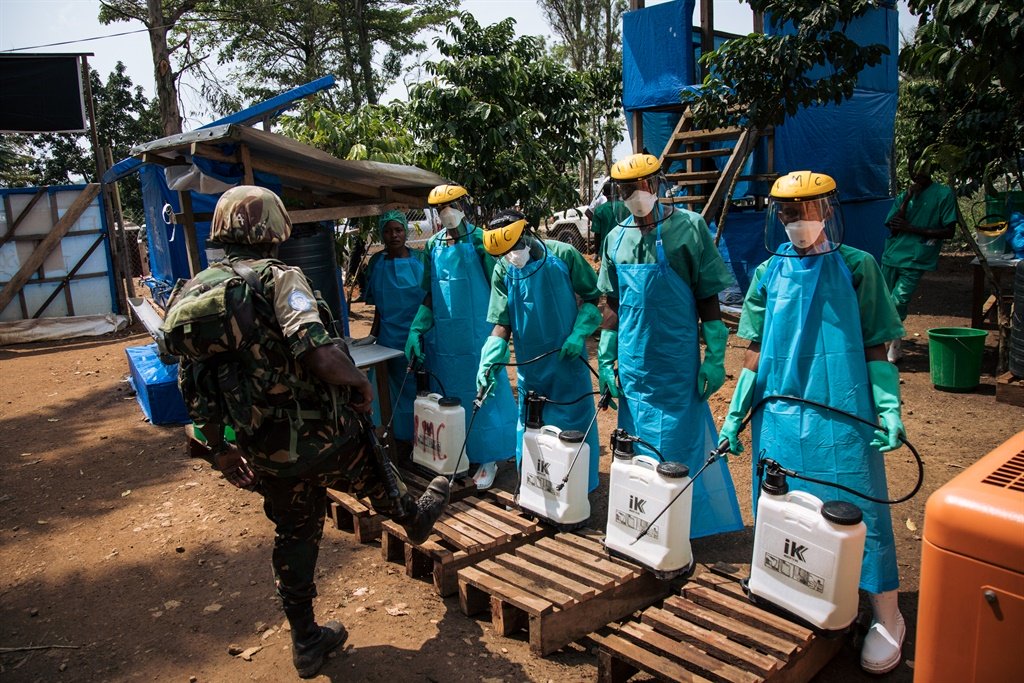

Kinshasa – Lack of resources, a muddle over
confinement and incipient panic are hobbling the response to coronavirus in DR
Congo, fuelling fears especially for Kinshasa, one of Africa’s largest and most
chaotic cities.
Almost all of the infections in the vast central
African nation have occurred in the capital, along with a handful in the east –
a deeply-troubled region hit by Ebola and militia attacks.
“The coming week will be the most difficult
for Kinshasa. The numbers will quickly double or triple,” Jean-Jacques
Muyembe, who is leading DRC’s fight against the pandemic, warned in an
interview with Jeune Afrique magazine.
According to official figures released late on Wednesday,
there have been 123 confirmed cases, 11 of them deaths, in a nation of some 80
million people.
Kinshasa, which has been isolated from the rest of
the country, has 118 cases but this is likely to be just the tip of the iceberg
giving the paucity of testing.
“On average, 50 tests are carried out each day
at the National Institute of Biomedical Research (INRB),” said a health
official, speaking on condition of anonymity.
Five cases have been recorded in six days in the
Democratic Republic of Congo’s volatile east, destabilised by 25 years of rebel
and militant attacks.
Two of them emerged in Goma, the capital of the
eastern North Kivu province, which is officially due to declare an end to the
Ebola outbreak on 12 April if no more cases of haemorrhagic fever emerge.
Fears of looting
Kinshasa, home to at least 10 million people, was
meant to go into lockdown on Saturday for four days under an announcement made
unilaterally by the region’s governor.
But officials delayed the measure after the
announcement triggered fears of a rise in the prices of basic goods and the
risk of unrest.
The national intelligence agency “warned the
presidency of the threat of looting,” an informed source said.
The city witnessed pillaging, led by security
forces, in 1991 and 1993.
A day after the lockdown U-turn, President Felix
Tshisekedi held an emergency meeting but there have been no announcements
since.
“They want to decide on something that works.
They can’t afford to make mistakes,” an observer said.
Later on Thursday, governor Gentiny Ngobila
announced that Kinshasa’s government district, which is also home to a number
of embassies and banks, will be “put in quarantine” for two weeks
starting from Monday.
Two globally-renowned names have been enlisted in
the campaign against coronavirus: Dr. Muyembe, who helped discover the Ebola
virus in 1976, is national coordinator, while the 2018 Nobel Peace laureate,
gynaecologist Denis Mukwege, is overseeing the response in the east.
‘General panic’
Despite these reassuring appointments, preparations
to deal with large numbers of coronavirus cases in Kinshasa are a mess,
according to experts.
“The medical facilities are unequipped to take
in sick people, apart from a hospital run by the Chinese,” a health expert
said.
There are only 65 ventilators in all of Kinshasa’s
hospitals, a researcher said. The INRB has no vehicles or fuel and foreign NGOs
are pitching in to help, other sources said.
The problems have been experienced first-hand by
some of Tshisekedi’s entourage.
The president’s special adviser, Vidiye Tshimanga,
tested positive on 23 March, after spending two days at home during which
medical teams failed to arrive.
Tshimanga, who was diagnosed with a mild form of
coronavirus and is on the mend, told AFP that when he went for a lung scan on
Monday, he was met by a hospital official “who refused to let me get out
of the ambulance”.
One of his friends and a close aide of the
president has meanwhile died, he told AFP.
“The medical teams were ill-informed and
fearful of Covid-19 and hardly took care of him,” Tshimanga said of his
deceased colleague.
“I have heard of other cases like this,”
he said. “A kind of general panic has set in. Covid-19 patients are being
left to one side without receiving care. There is a lack of information… something
that we (the government) are going to have to tackle as soon as possible.”
